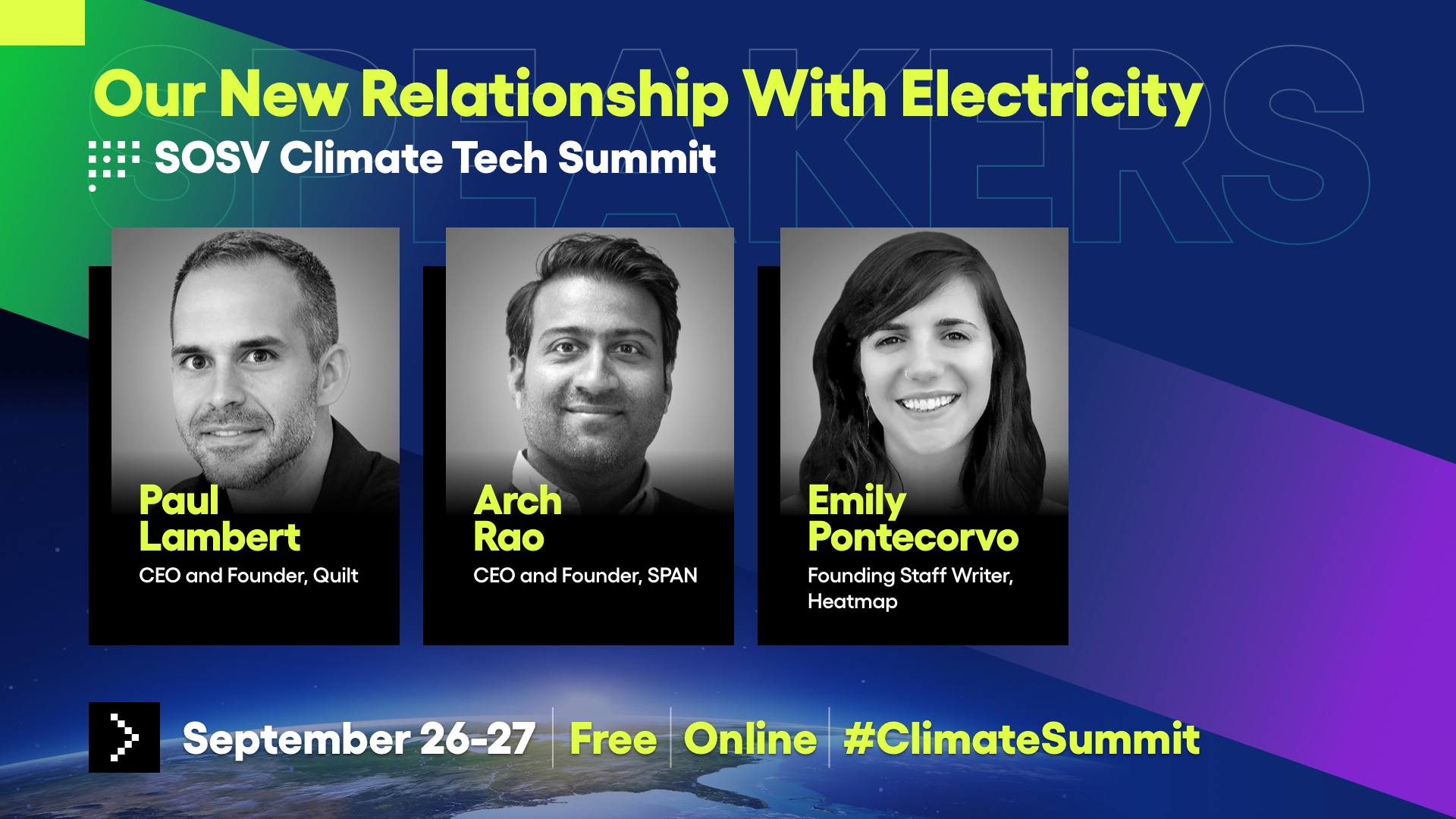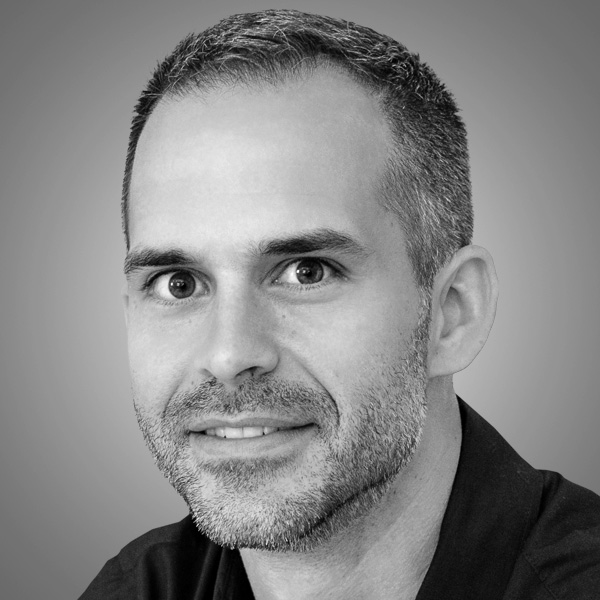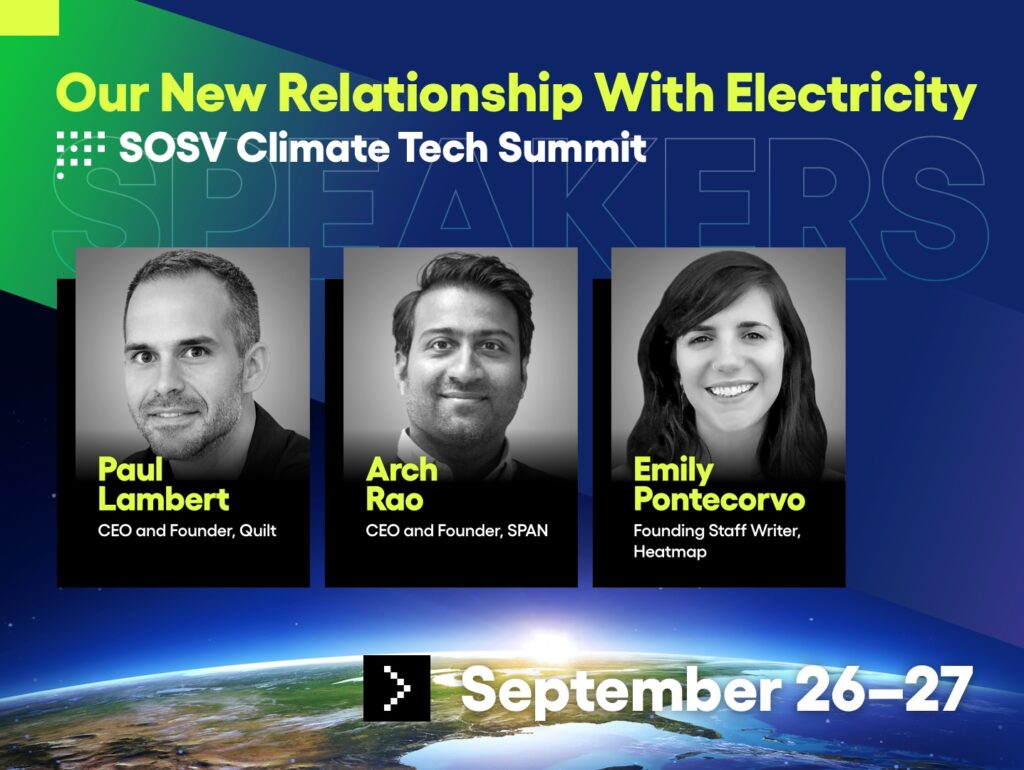
In 2023, the movement for mass electrification has come home (literally). Gas-fired stoves and heating systems are under fire for carbon emissions. Heat pumps, lauded as the future of HVAC, have become a trendy technology (and political litmus test). Homeowners with solar can in some areas sell excess energy back to the grid operator. To help Americans afford cleaner devices, the Inflation Reduction Act (IRA) provides significant tax credits for solar panels, battery storage systems, upgraded electric panels, induction stoves, and electric vehicles.
So how will those forces driving home electrification alter the way consumers manage their electricity consumption and invest in new technologies to make that easier?
The SOSV Climate Tech Summit (Sept 26-27 / free & virtual) hosted two entrepreneurs focused on this electrified future of the home. We got their take on the state of electrification and further innovations and policies needed to cut the gas lines for good.
The IEA estimates that to achieve net-zero emissions by 2050, electricity needs to be decarbonized by 2040 and account for half of total energy consumption, up from 19% in 2018. To make matters more difficult, there may be an additional 2 billion people on Earth by 2050, and rising living standards in the Global South (check out the panel) will increase per capita energy demand. Mass electrification won’t count for much unless the whole world—not just wealthy, climate-conscious consumers—get on board.
This panel featured two companies on the forefront of home energy management and electrified cooling and heating.
SPAN’s smart electrical Panel enables homeowners to manage and reduce energy costs, circuit by circuit, via a smartphone app. The company also provides Drive, a smart EV charging system that minimizes energy usage and costs, and an energy backup technology that extends the life of battery systems by 40% on average according to SPAN. The company has raised over $230M from backers including Wellington Management, Congruent Ventures, Capricorn Investment Group, Qualcomm Ventures, Fifth Wall, Munich Re Ventures, A/O PropTech, and Amazon’s Alexa Fund. SPAN founder and CEO Arch Rao joined the discussion.
Quilt, founded by three former Googlers, is developing next-gen, ductless heat pumps that are easy on the eyes, cheap to install, and optimized for energy efficiency by an AI. In May 2023, Quilt raised a $9M seed round led by Lowercarbon Capital and Gradient Ventures with Incite Ventures, MCJ Collective, Garage Capital, Climate Capital, and Spacecadet participating. Quilt currently has a waitlist for its product, set to launch sometime in 2024. Paul Lambert, CEO and founder of Quilt, joined the panel.
Emily Pontecorvo, Founding Staff Writer at Heatmap News, moderated this discussion.
How close are we to carbon-zero home living?
The Speakers

Arch Rao
SPAN Founder & CEO Arch Rao is an energy technologist with expertise in commercializing clean energy technologies. SPAN has reinvented the home electrical panel, which had seen little innovation over the last 75 years. Previously, Arch was the Head of Products for the Tesla Energy business where he helped develop and launch flagship products like the Powerwall, Powerpack, and Solar Roof. Prior to Tesla, Arch was a Co-Founder at Verdigris Technologies, an energy monitoring & analytics company developing solutions for the commercial & industrial sector. He earned his Masters in Mechanical Engineering from Stanford University, where he worked on doctoral research before starting his entrepreneurial path.

Paul Lambert
Paul Lambert is the Founder and CEO of Quilt, where he is helping to build the world’s most advanced home heating and cooling system. Paul’s career has evolved at the intersection of product, technology, and sustainability. Before founding Quilt, he was a partner and director at Google’s in-house incubator, Area 120, where he led the company’s sustainability drive. Paul has also worked as a product manager for Twitter and Google, and early in his career, he was the founder and CEO of Learndot, a learning management system acquired in 2014.

Emily Pontecorvo
Emily Pontecorvo is a founding staff writer at Heatmap where she covers climate policy and tech, including stories related to clean energy, building decarbonization, and removing carbon dioxide from the atmosphere. Previously she was a staff writer at the nonprofit climate journalism outlet Grist. She is based in New York City.

